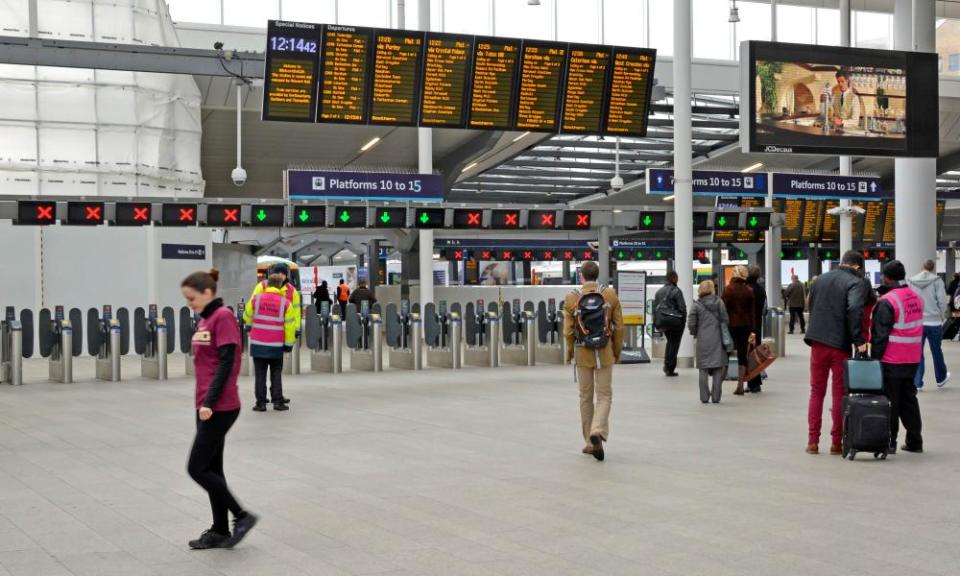Rail employers and unions agree to talks over £2bn of cuts and job losses

Train operators, Network Rail and unions have agreed to talks over cutting rail services and axing thousands of jobs to save the industry up to £2bn a year as it plans for a post-Covid future of fewer passengers.
Under a framework agreement signed by the four main transport unions and rail employers, voluntary redundancies will be sought throughout the railway to close the funding gap from an 80% decline in passenger revenue since the start of the pandemic.
The document states that the current level of government support, of around £800m a month, “is not unlimited and is not sustainable”, and that “train service levels will be curtailed, reduced or flexed in the future”.
While only about 85% of normal timetabled services are running, passenger numbers are just over 40% of 2019 levels, and the industry is not expecting the numbers to grow beyond 80% of pre-Covid traffic.
Unions have said they will not accept compulsory redundancies or changes to pension rights. However, a generous voluntary redundancy scheme could entice thousands to leave the industry, which has a high proportion of staff aged over 55, predominantly men.
Sources said the agreement effectively rules out strikes during 2021, while train companies and Network Rail try to find cost savings. Detailed proposals at local levels will be drawn up by the end of October.
The government – whose direct control of the industry has increased since scrapping franchises and putting train operators on emergency contracts – has said it will not fund outstanding pay rises for 2020 or 2021, bar a £250 rise for the lowest paid.
A ban on external recruitment will be brought in, with staff given priority to retrain. Ticket office posts may be considered for cuts, with the agreement referring to “change in passenger behaviours in the way in which they use the rail network including accessing information and ticketing services”. Working practices will be targeted, including a move to “robust” seven-day working and more remote monitoring technology in maintenance.
Steve Montgomery, chair of the Rail Delivery Group, which represents train operators and Network Rail, said: “The Covid-19 pandemic has led to the biggest drop in passenger numbers since records began … To build back a railway which is sustainable in the long-term and addresses changing passenger needs, we must change the way we work and not take more than our fair share from the public purse.”
He added: “We face tough choices, we have to adapt and we want to retain as many jobs as we can.”
Mick Whelan, Aslef’s general secretary, said the government was forcing cuts in the wake of the pandemic and the union was engaging to protect its members and the railway: “We are determined to ensure it has a sustainable future – not just in the next few months and years, but down the decades.”
RMT general secretary Mick Lynch said the union had to participate to defend its members’ interests but added: “We don’t accept the notion that the future of the railways should be based on job cuts and attacks on safety, pay, conditions and pensions.” He said the RMT would pursue a reduction in the working week and bringing catering and cleaning work in-house.
The TSSA general secretary Manuel Cortes said: “We know our industry is under threat as a result of the failure of privatisation and the impact of the global pandemic. However, make no mistake, we will not tolerate any compulsory redundancies now or in the future.”

 Yahoo Finance
Yahoo Finance 